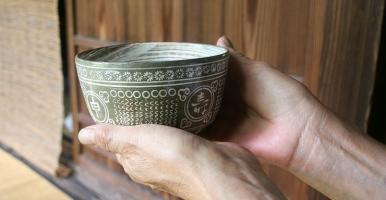About
History and Community
Since its inception in 1950, Cornell's East Asia Program (EAP) has been a focal point for research, teaching, and outreach on East Asia. It serves as a campuswide network of specialists devoted to the study of contemporary and historical East Asia, including the region's relationship to the U.S. Today, EAP draws its membership of 45 core faculty and 57 affiliated and associated faculty, many of whom are prominent leaders in their scholarly fields, from eight of Cornell's 12 schools and colleges.
East Asia Program Executive Structure
The East Asia Program is directed by a rotating three-year faculty director, selected from the EAP faculty. The director is assisted by a steering committee that is appointed annually.
- Nick Admussen, Director of EAP, Associate Professor, Asian Studies
- Daniel Boucher, Associate Professor, Asian Studies
- John Whitman, Professor, Linguistics
- Ding Xiang Warner, Professor, Asian Studies
- Andrea Bachner, Professor, Comparative Literature
- Suyoung Son, Associate Professor, Asian Studies
- Eli Friedman, Associate Professor, ILR
- Yun-chien Chang, Jack G. Clarke Professor in East Asian Law, Cornell Law School
Student Affiliation
All Cornell students are welcome to participate in EAP activities; certain students become part of the EAP because of their course of study. At the undergraduate and master's degree levels, majors in Asian Studies with a concentration in East Asia are systematically added to EAP's email lists.
The EAP Graduate Student Steering Committee provides networking opportunities for graduate students and represents graduate student interests and concerns within the program.
Faculty Affiliation
Faculty
Faculty are key leaders in EAP's activities. They serve in the following capacity:
- Conduct research and teach primarily in East Asian studies
- Serve on EAP committees
- Invite guest speakers and host workshops, conferences, and symposia
- Lead, as primary investigators, sponsored projects through EAP
- Other collaborative academic work coordinated through EAP
Associated Faculty
Associated faculty are faculty at Cornell and at other universities who occasionally collaborate with the East Asia Program.
Visiting Scholars
Visiting scholars are scholars of East Asian studies who are in residence at Cornell to pursue their research and work with EAP faculty and students. Most EAP visiting scholars come from countries in East Asia and spend nine to twelve months at Cornell. Visiting scholars must have a faculty host who is an EAP core faculty member.


